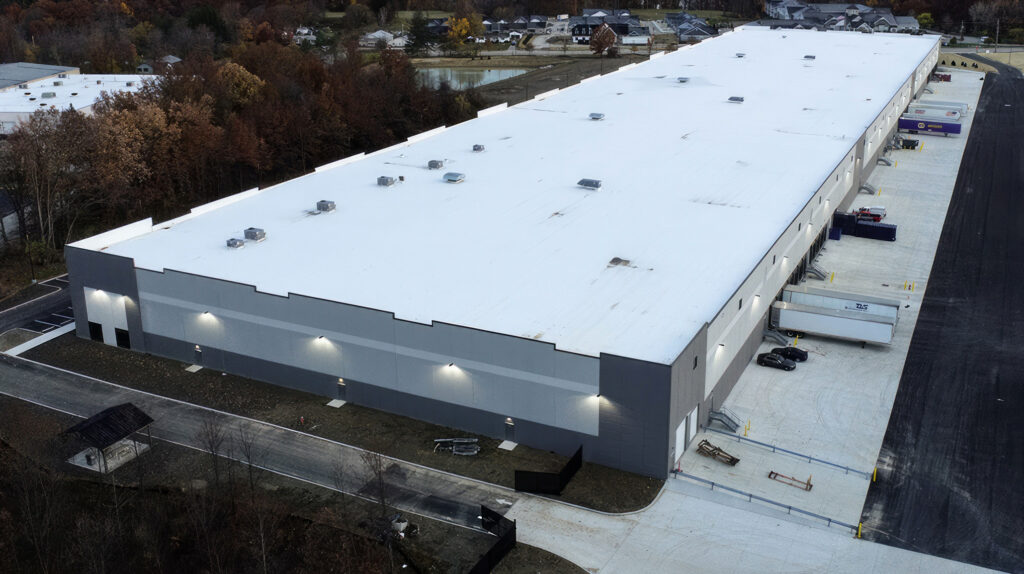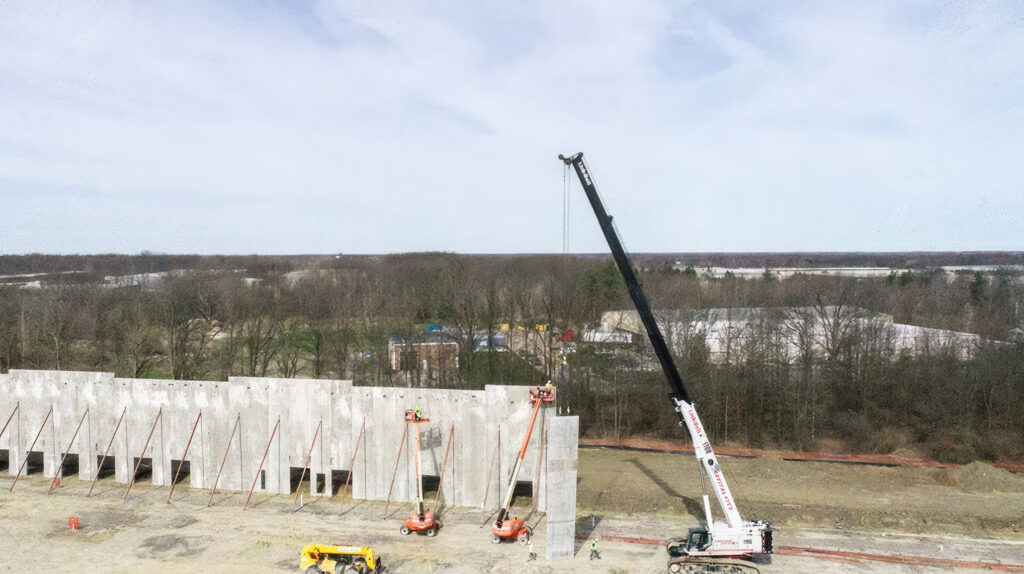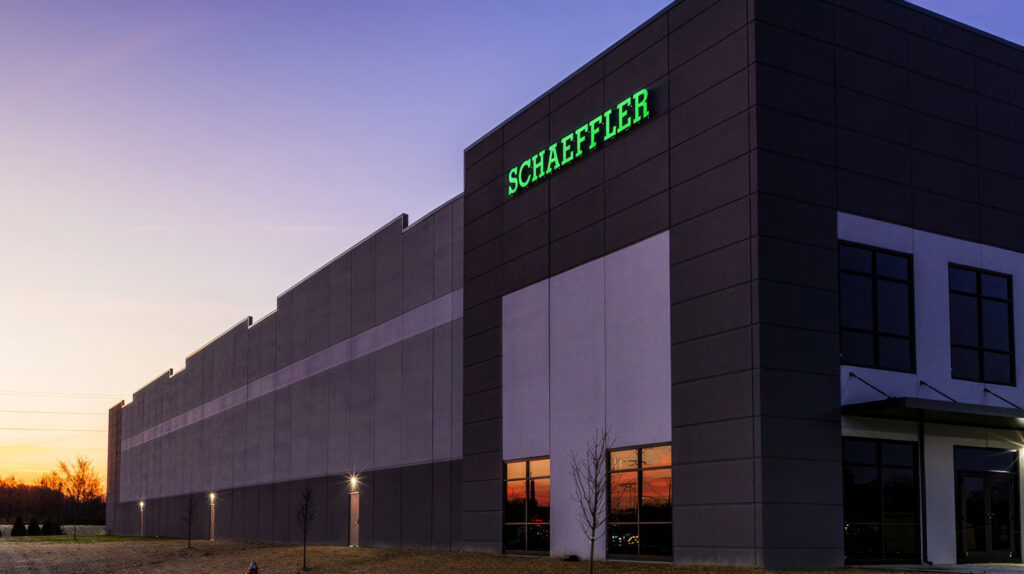The Strongsville Commerce Center is a large-scale construction project aimed at creating a 310,080 SF Industrial building in Strongsville, Ohio.
The site was formerly an old auto junkyard, and the project faced significant challenges due to the presence of wetland restrictions, environmental concerns, and the complex history of the site.

CHALLENGES
Wetland Restrictions: The property had wetland restrictions, which posed a significant challenge for the development. To mitigate this, the client had to purchase wetland credits to offset the impact on the wetlands. However, finding suitable locations to purchase these credits proved to be a complex task.
Environmental Issues: Given the site’s history as an auto junkyard, environmental concerns arose. Contaminants had seeped into the soil, necessitating environmental remediation before any construction could commence. Because of this, there was the threat of increased complexity in soil management and potential cost escalations.
Unknown Soil Conditions: The presence of buried concrete from the junkyard added an extra layer of complexity. Determining the amount of concrete and estimating the cost for removal was challenging because of the large size of the site. This required strategic excavation and constant testing to minimize the volume of contaminated soil and manage disposal costs.
Schedule Management: Adapting to environmental remediation needs while trying to maintain the construction schedule and budget became a challenge during this project. Maintaining the project schedule was vital, especially since the future tenant had to relocate their warehouse to the new building. Accurate schedule forecasting and communication with the developer and tenant were critical to manage their expectations.

SOLUTIONS
Wetland Credits: The team worked tirelessly to secure wetland credits by engaging an environmental consultant to evaluate available options and provide reports to demonstrate the feasibility of credit purchases. The Peak Construction team engaged in strategic planning, including proposing a phased construction plan to the city council and obtaining necessary EPA and zoning approvals. This enabled the project to commence in phases before the team secured the necessary wetland credits.
Environmental Remediation: Prior to construction, an environmental remediation process was initiated. The project team conducted detailed environmental studies by segmenting the site into smaller areas for targeted remediation, and stockpiled soil for retesting. Daily communication with the owner and constant monitoring of soil conditions helped manage the costs and progress.
Soil Condition Management: Peak Construction utilized a strategic approach in excavating and testing soil, focusing on isolating contaminated areas. Chemical stabilization of high moisture contents in the subgrade soil was used to improve soil stability and meet required compaction requirements. Regular tracking and reporting helped manage the costs and progress effectively confirming the value of the mitigation efforts to the end user in speed to market terms. This minimized the amount of soil needing disposal and achieved significant cost reductions.
Communication and Collaboration: Constant communication and collaboration between Peak Construction’s project management team, subcontractors, and the client were pivotal in addressing challenges as they emerged. The project manager’s relationship with the client, built on trust and transparency, enabled effective communication throughout the project.

OUTCOMES
The case study of the Strongsville Commerce Center illustrates the significance of conducting thorough due diligence, particularly in projects with complex histories. It underscores the importance of communication, quality control, and proactive management to address challenges as they emerge.
Ultimately, it highlights the need for a multidisciplinary approach and strong partnerships with consultants and subcontractors to overcome environmental and site-specific issues. Peak Construction’s expertise and commitment were crucial in successfully delivering this project.
Contact Peak Construction about your Industrial project today.








